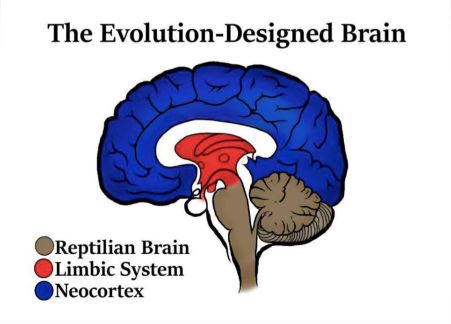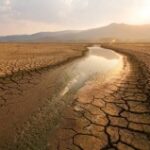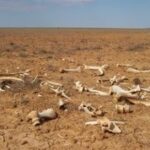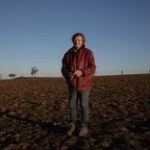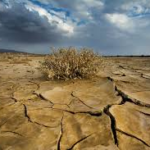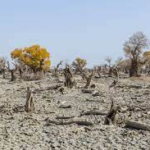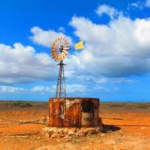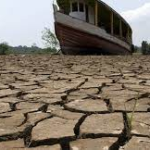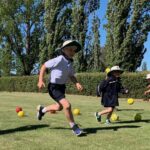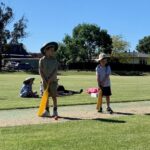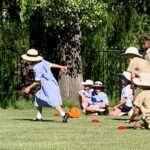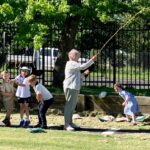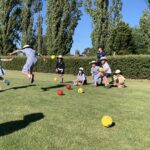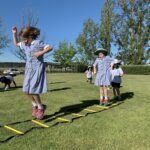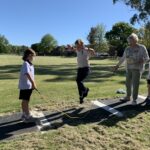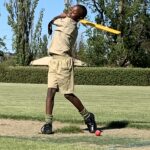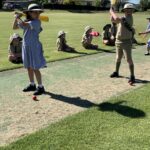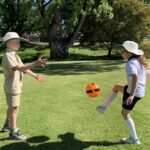TAS Talks Term 4 Week 4

01. From the Principal
DR RACHEL HORTON
The ability to communicate effectively is possibly one of the most important life skills any of us learn. Over the past weeks I have seen impressive examples of communication across the whole school. Last week I had the great honour of adjudicating my first TAS Senior School inter-House public speaking competition. I had naively hoped that I might be able to relax and enjoy the speeches and that the winning speech would be obvious, but the standard across the board with speakers from all year levels was outstanding, so I had my work cut out for me. The quality in the Middle School was equally impressive. Every speaker demonstrated real skill in their manner of communication, confidently and clearly articulating delivering their message. It was clear that significant preparation had also taken place for each speech.
I have also been delighted to receive a range of persuasive letters arguing for, or against the benefit of homework in Junior School. While, unsurprisingly, the majority argue against homework, the arguments both for and against were varied, passionate, cleverly constructed and compelling.
Well-developed literacy skills enable our students to both effectively communicate and to understand others. Indeed, literacy can be seen as the cornerstone of student success and is certainly not limited to the English classroom. At TAS we continue to develop programs to improve student literacy. While reading is a wonderful way to develop literacy skills, this is a decreasingly appealing past time for student. I would encourage families to include simple literacy practices if they are able and have included a few ideas below. My thanks to Assistant Director of Studies, Mrs Gill Downes for compiling the list.
-
- cooking with your children – the reading of recipes helps with the required comprehension for following procedures
- reading with your children but also modelling good reading practices by letting them see you reading for pleasure
- having a family word of the week where the children and adults try to use the word whenever they can during conversations that week
- playing the ABC game where you choose a topic (places, foods, people) and each person takes it in turns to name an appropriate noun for their letter (Antarctica, Barbados, Canberra, Dunedoo, England…). This is great for long journeys, and I also have fond memories of playing this with my Mum when we used to ride together. I am particularly good at British birds!
- buying books and magazines and leaving them around the house – this is harder for parents of reluctant readers, but options including graphic novels, the Guinness Book of Records or sporting books and magazines might be appropriate
Word games like ‘Scrabble’ ‘Little Wordy’ and ‘Scattergories’ are wonderful ways to have fun while building vocab and thinking about language
- For those who would prefer to listen to stories, an Audible subscription is a good option
Reading at bedtime is also a fantastic practice. This might be an incredibly hard sell for older children but is an option for Junior School families and can make a real difference
Dr Rachel Horton
Principal

02. COVID-19 UPDATE
Given the cases in Armidale this week, we ask that all parents monitor NSW Health advice on exposure sites to determine whether they have been exposed to the virus. This information can be found at the Hunter New England Health site here on the link https://www.health.nsw.gov.au/Infectious/covid-19/Pages/default.aspx
The process of contact tracing identifies people who are either ‘close’ or ‘casual’ contacts with an infected person. A ‘close contact’ is someone who has had direct exposure to a COVID-19 infected person and any close contacts would have to immediately isolate at home for a period of time determined by NSW Health and be there until they have a negative COVID-19 test. The risk of infection is reduced if masks are worn, if there is social distancing and ventilation (such as being outdoors) and if one or both people have been vaccinated.
A ‘casual contact’ is someone who has been within two (2) metres of person with the virus, this could mean being in the same room but not necessarily talking to them. Casual contact usually requires isolation only until a negative COVID-19 test has been received.
If you or your child are identified as being a close or casual contact, please inform the school immediately on coronavirus@as.edu.au
It is very important that if anyone in your household has flu like symptoms they get a COVID test and stay at home. Students should not return to school until they have had a negative result and all symptoms have cleared. For more information on the School’s approach to managing COVID-19, please see the information on the Parent Portal by clicking here www.as.edu.au/parents/.
As you know, restrictions around school operations are different to those that exist currently in NSW. In order to protect young students who have not yet had access to vaccination, Year 12 HSC students and school staff, NSW Health and AISNSW have issued Level 3 Guidelines for Schools that are likely not to be changed until the HSC exams are over. These guidelines are in addition to the legal requirements set out in the current Public Health Order. Our current rules include the following:
- Students from Years 6 – 12 and all staff must wear masks indoors
- Junior School students are recommended to wear masks while indoors
- Year groups are separated from each other where possible to create year group bubbles
- No parents or external visitors are allowed on the school campus – even when double vaccinated
- No school assemblies – these will continue to be live streamed
- No singing or chanting
- Social distancing, hand hygiene are crucial and must be practiced throughout the day
It is our shared goal to minimise the chances of a positive COVID-19 at TAS, and the potential impact of a case if it does occur. For this reason, we advise that you remain vigilant and if you have not yet had a vaccination, please consider doing this for your own safety and for that of others. For information about where and how to get vaccinated, please use this link https://www.health.nsw.gov.au/infectious/covid-19/vaccine/Pages/default.aspx
If there is a case of COVID-19 at TAS, we will alert parents immediately and take all necessary action to ensure our students and staff are back on site as soon as possible.
If you have any questions or concerns, please email coronavirus@as.edu.au

03. From the P&F
MR PAUL GADDES

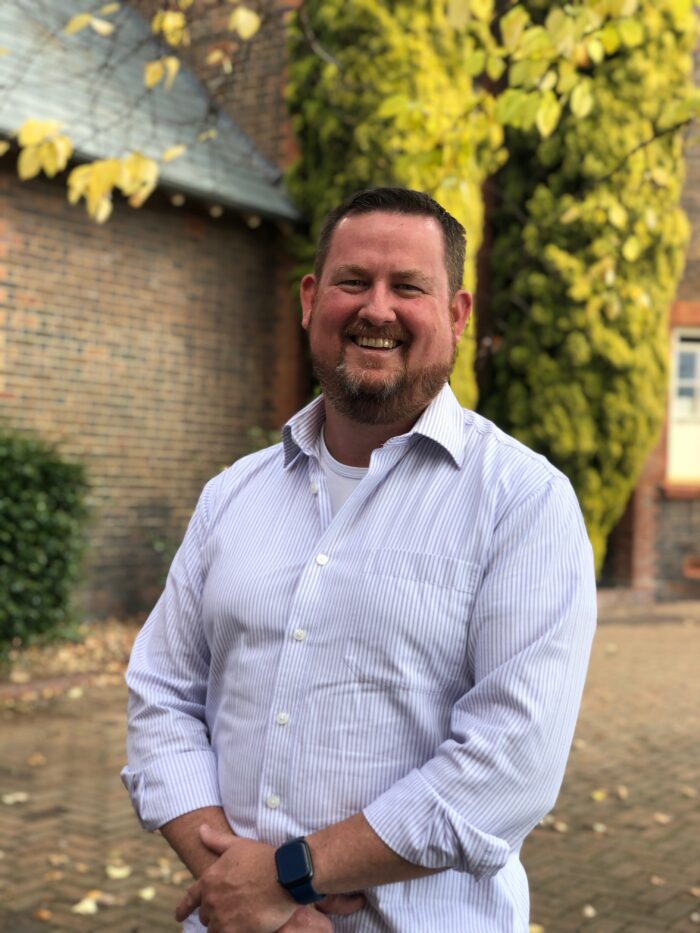
Year 12
Congratulations to the current Year 12 cohort as they attend their final formal week at school.
While it has been a disruptive year, you have all remained focused as best you can and made it to this point in your studies. Be proud.
From the P&F, we wish you all the very best success in your HSC exams.
Valued P&F Members
As Year 12 families also begin to wind down their involvement with school, it is time to recognise members of our P&F community who have always been there as contributors to P&F activity over the past years. I would like to recognise and publicly thank:
Heather Williams: over the years Heather has been a constant contributor and deeply involved in P&F Plant Stalls and Christmas Puddings. And while Heather couldn’t physically be with us for this year’s pudding bake, she was still involved, loaning her food processor and on several occasions became our ‘phone a friend’. Thank you, Heather.
David Lawson: we not only thank Dave for his recent P&F Executive role as the prior Vice President, but for his contributions to co-organise many past P&F events. It also needs to be acknowledged that Dave’s ‘Silver Bullet’ catering van has become a mainstay of many of the recent P&F events. Thank you, Dave.
Additionally, Di Lambeth and Vicki Louis have been constant supporters of P&F activity at various events over past years. Thank you Di and Vicki.
While there are countless other current Year 12 parents we appreciate for contributing to the P&F over the years, their call-out will come, as their remaining children progress through TAS.
Christmas Puddings
Collection of Christmas Puddings by Year 12 Parents is set for this Friday 29 October. Due to current on-campus Covid restrictions, please pre-arrange your collection before Friday by contacting the P&F Exec on pandf@as.edu.au
Remaining Christmas Puddings are selling out fast. Please order your online now to avoid missing out. https://www.trybooking.com/BUEZP
Golf Day
The weather was perfect, the clubs were swinging, and the banter was rapid.
GOLF, LUNCH, DRINK, ENJOY. Nailed it!
Attendance was great with a mix of beginner and experienced golfers, not to mention some ‘pro-lunchers’. After arrival and settling into rental clubs and buggies for some, a player briefing outlined the 9-hole shot-gun Ambrose match-play and coveted TAS Merchandise prizes. Off to the first tee and it was all uphill from there – literally for those of us starting at the back of the course.
Prizes categories were for the Winning Team, Wooden Spoon Team, Worst Shot of the Day, and Closest to the Pin off the Tee. Photographic proof WAS required as we all know how golfer stories tend to elaborate.
- The Winners: Nick Pearce, Barney Buntine, Tom Ledingham, Paul Gaddes
- The Spooners: Tina Skipper, Soph Wright, Susie Crawford
- Worst Shot: Jacqueline Buntine
- Closest to the Pin: Paul Spillane
Keep an eye on the sought-after historical TAS Sports Blazer that Paul is wearing for his impressive tee shot. This blazer becomes the carry-on prize at future Golf Days for those wanting a crack at the ‘Masters Jacket’.
Contact the P&F Executive
If you have anything you would like to raise with the P&F Executive, please send us an email on pandf@as.edu.au
Mr Paul Gaddes
P&F President

Academic - Stage 5 Running a Business and Marketing
Coffee, Cookies and Candles
“Get excited for the start of Week 6, where Sofia Paris, Eve Muirhead, Emma Pearce and Lauren Earle will be selling Coffees, Cookies and Candles through their business elective, Running a Business and Marketing! Make sure to support their business by purchasing some delicious freshly baked cookies and high quality barista made coffee. Due to Covid restrictions we are hoping to make as many sales as possible through preorder. On the google form you can order yourself a coffee and/or cookie which will be delivered to you either in the morning, at lunch or at recess depending on your request. If you want to order a coffee and/or cookie please complete the form below which will be sent out daily. https://forms.gle/
Eve Muirhead, Lauren Earle, Emma Pearce, Sofia Paris
(Keep an eye out for further marketing from this elective in the Community Notices section of TAS Talks).

04. Wellbeing
A moment with Mack

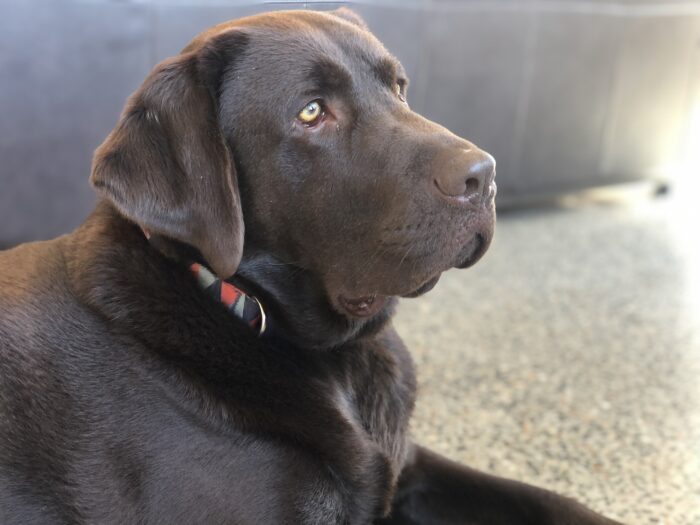
Part 4 Stress systems within the brain/body
Thank you for following along, we are now into Part 4. So far we have established that Self-Reg is concerned with energy states and tension. Stress relates to how much energy we burn to maintain homeostasis and how long it takes for us to recover from this.
This week we are going to take a closer look at the stress response within the brain and body. How does this actually work? To begin, let’s take a look at the brain itself.
As humans, it could be said that we are born prematurely. This sounds a bit brutal, but it is a clever design feature of humans. If we were to be born with fully developed brains, the process of being born would simply be impossible. Plus, it wouldn’t allow us to adapt to the environment we live in.
When we are born we have what is best described as a primitive brain. By this I mean the fundamental structures of the brain are there, the bits that regulate ‘automatic’ things like temperature, hunger. This is the part of the brain responsible for survival. We share this with other animals like reptiles, so it is sometimes known as the reptilian part of our brain.
The other part that is reasonably well developed is the limbic region in the brain (this is the red part on the diagram below and try to remember it as the ‘red brain’). This part of the brain is also responsible for survival and houses the emotional part of our brain. It also does other things, but for the purpose of our exploration of Self Reg, let’s just think about red brain = survival and how this affects our behaviour and emotions.
The outer part of the brain that takes the longest to develop is called the ‘neocortex’ and this is the part of the brain that makes us uniquely human. No other animal has a prefrontal cortex quite like ours. This is the home of our executive functions – that means, it’s like the computer processing part of our brain. This part is responsible for language, thinking, making decisions, planning, learning and reflecting. It is the blue part on the diagram and try to remember it as the ‘blue brain’. It also has another amazing function that only humans can do and that is ‘double knowing’, knowing what we know. This is the ability to reflect on things, being aware of our thoughts and feelings and knowing that we are separate from them.
One key thing you need to learn is that the neocortex is not fully developed until the age of around 25 years. So please, please, please remember that children are not mini-adults, their brains are not yet fully developed, so our job as the adults in their lives is to share our prefrontal cortex and help guide them through until theirs is developed.
The diagram below shows these regions of the brain. Our brain is sometimes referred to as a triune brain, which means “a brain within a brain within a brain”. My apologies to any doctors, psychologists or neurological specialists for this rather crude piece of brain science, but I am just a very clever Labrador!
Dr Dan Siegal explains this in a really ‘handy’ way! Looking at your left hand, the base of your thumb is like the brain stem. Then if you fold your thumb into the palm of your hand, this represents the limbic region (red brain), then fold your fingers over your thumb (you shouldn’t be able to see your thumb) and this is the neocortex region. Handy hey!
What happens when you’re suddenly stressed, or overstressed, are the fingers lift off your thumb, indicating that the neocortex (blue brain) is no longer in use, and the limbic region (red brain) is now in operation. Let’s take a closer look at this.
How my brain and body work under stress
There are 4 levels of the stress response:
1. Social engagement
When we are slightly stressed, we use relationships to deal with stress/tension/energy by turning to other people for help. If there is no one available, or if the people we are with are causing the stress, the brain shifts to older strategies (remembering our brains are ANCIENT and have slowly evolved over time).
2. Fight or flight
This is the next level of stress and at this stage, we have ‘flipped’ from blue brain to red brain. Our limbic region is in control. Let’s look at how this happens.
Firstly, our amygdala judges a situation and decides whether or not it is stressful. This decision is made based on our senses (like the things we see, hear, touch, taste or smell in the situation) and also on stored memories (what happened the last time we were in a similar situation). If the situation is judged as being stressful the autonomic nervous system (ANS) shifts into gear. This system is ‘automatic’ and generally operates without conscious control. Think of this as hitting the accelerator.
What’s happening in the body – your digestion has slowed down, your immune system has slowed down, the muscles in your inner ear stretch to pay more attention to low-frequency sounds (like bushes rustling) rather than the higher frequency of a human voice, massive amounts of adrenalin is released to prime your body to move – your blood pressure goes up sending oxygen and blood to the core muscles for action. As you can see, very expensive on our body in terms of energy the body uses to activate this response.
Once the ‘threat’ is over the parasympathetic nervous system takes over. The parasympathetic nervous system is responsible for the body’s rest and digestion response when the body is relaxed, resting, or eating. It basically undoes the work of the sympathetic system after a stressful situation, think of it as the breaking system.
1. Freeze
In ‘fight or flight’ we are getting a ‘flooding’ response to the sympathetic nervous system. If the drain on this system is too great then the brain shifts into freeze. What is happening here is you are summoning up the last available energy and will wait until an opportunity to escape presents itself. It’s like ‘playing dead’ hoping that you will be left alone long enough to make a run for it.
2. Dissociation
This is the brain’s highest order of protection, it helps us to cope with situations by disconnecting (not remembering) to protect you from traumatic situations, body sensations, emotions, or memories that may be overwhelming. For example, let’s say someone was in a car accident. A few days after the accident, the person finds they cannot recall parts of the accident, even though reports of others were that they were conscious and responsive during those times they cannot recall. This would be a dissociative response to protect the brain and body from stress.
There are also stress cycles, this is where we can get caught in a high state of stress and can’t move back down through the stages of arousal and this is known as long term stress (opposed to the short term stress outlined above).
For our children and adolescents, the neocortex region is very underdeveloped and very unreliable, so when stressed they will ‘flip’ into the limbic region of the brain. Please be patient and share your calm, this will help reduce the stress so the child can come back down through the arousal states and go from red brain to blue brain.
News flash – Alix will be running workshops in 2022 about Self Reg…..
Ms Alix Goudge
Counsellor

05. From the Creative Arts Coordinator
MR ANDREW O'CONNELL
After a rigorous audition process, we have finalised the cast for the 2022 TAS Production Rhinoceros. Congratulations to all the students listed below, the auditionees this year were particularly prepared and committed, and through this challenging competition I know we have ended up with a fantastic group of actors. The remainder of the term will see the cast meeting over Zoom to workshop the script so they can go into the holiday break with the final version to start learning their lines. I want to acknowledge the hard work of the audition panel – Charlotte Brunyee, Bridget Burnett, Mr Lane and Mr Wheatley – whose evenings last week and on Monday ensured the audition process was thoughtful and comprehensive.
Mr Andrew O’Connell
Creative Arts Coordinator
Cast List – Rhinoceros Cast List
| Berenger | Will Nash | |
| Jean | Claude Toakley | |
| Daisy | Chelsea Bourke | |
| Dudard | Meave Churchyard | |
| Papillon | Izzie Krishnan | |
| Botard | Oliver Morse | |
| Mrs Boeuf | Sarskia Clark | |
| Logician | William Gilpin | |
| Old Gentleman | Jasper O’Neil | |
| Housewife | Felicity Barton | |
| Grocer | Will Jackson | |
| Grocer’s Wife | Temicka Seagrave | |
| Café Owners | Bella Fernance
Holly Dauparas |
|
| Waiter | Will Knox | |
| Fireman | Joshua Miron | |
| Little Old Man | Sam Krishnan | |
| Little Old Man’s Wife | Sophie Rogers | |
| Ensemble | Tommy Burnett
Stirling Stewart Olivia Lockett Isobel Pengilley Sophie Hardin |

06. From the Head of Middle School
MR MARK HARRISON

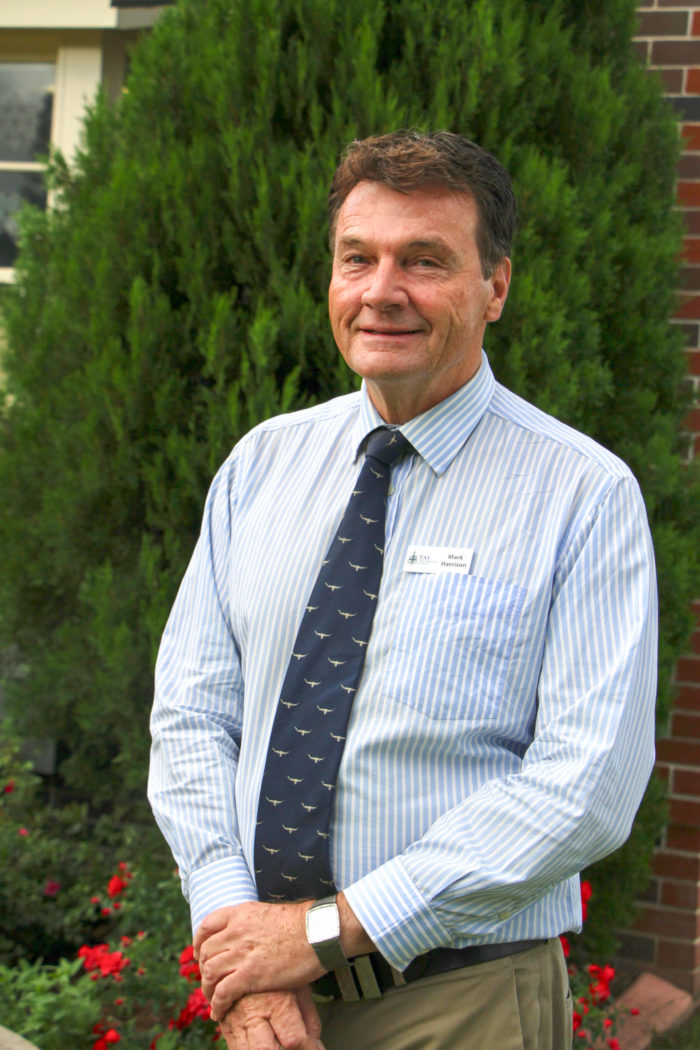
One of the most engaging aspects of the International Baccalaureate (this was the case, even when I taught its senior components) is its vital relevance and easy application to global appreciation and understanding. Point in case? I flew around our precinct yesterday: I landed in a Year 7 room. It was an English lesson and Mrs Collett was in full flight, so I began to taxi, stop engines and…listen. The engagement of her students was impressive (it is, after all, Term 4). They’ve been writing poetry and Judith Wright’s ‘Drought Year’ had been the thematic focus. I’ve sought their permission for publishing some of their work – and this is why you’ve no ‘dry as chips’ instalment from me; you will have a more creative, challenging and engaged conception of ‘the dry’, however. Sit back and read what some of our thirteen-year-olds are writing currently.
Mark Harrison
Head of Middle School
- (The crusty dirt like peeling skin)
- (The rivers drier than paper)
- (The bones of misery lie breathless in the sand)
- (The soldiers that have fought this battle are beginning to weaken)
(Is it time now to put up our tools and surrender to this thing that rules?)
No
POETRY CONTRIBUTORS:
Clare McDouall, Hunter Moorcroft, Cait Wallis
Drought
The crusty dirt like peeling skin,
The heavens have no sign of giving in,
The way the sheep are walking,
Makes the whole world feel like not talking,
The rivers are dryer than paper,
there is no way we can escape her,
Mother nature will not relinquish,
The fires have not yet been distinguished,
The bones of misery lie breathless in the sand,
The clouds of thunder have still been banned,
But dust storms take its place,
You can see that it has a face,
The soldiers that have fought this battle are beginning to weaken,
Even the fort has fallen at Dunbeacon,
The windows start to shudder,
When the winds are called by the Mother,
Is it time now to put up our tools,
And surrender to this thing that rules,
We carry away our bags to the place that has not yet been hit,
Even though our animals are begging, we still have to split.
The lonely bush
Sitting in the dry nothingness
Getting cooked every second it lives
Dryer than ever
The windmill was a rusty tower
Creaking on every turn
Screaming and whining for help
Dryer than ever
The buoy was stranded
All Alone on the sand
Thirsting for water
Dryer than ever
There was a boat
Obviously not afloat
As beached as a dead whale
Dryer than ever
The mangrove
Withering away
As hot as the sun
Dryer than ever
Pacific Palms
The waves rolling on the west side of Lizzy beach
The crashing of the waves turn to white wash
Rolling onto the sand
Revealing the pipis that are feeding for a drink
We walk down the beach
Footprints in the sand
The miniscule grains wedging between my toes
Diving into the glassy water
The colourful fish swimming through the seagrass
As dreamy as could be
But what they didn’t know
Is that they’d be dinner for me
Holding my breath for as long as I can
Chasing the flathead that shot off in the sand
Slowly catching up on the flathead I see
I shot him and took the fish out of the sea
I shout out to my friends
Look at me! Look at me!
Jaws dropped at the fish that they see
“That’ll be a feed, mate!”
“Save some for me!”
And that’s why I love the salty sea.
Climate Change
Oceans are heating
When will we learn
Our planet is dying every second we earn
There will be no sea life
By the time it has come
We won’t be spearfishing
We won’t be fishing
Because of what all those scumbags have done
What have we become
Stop littering
Stop spitting gum
Otherwise our planet
will be gone

07. From the Head of Junior School
MR IAN LLOYD

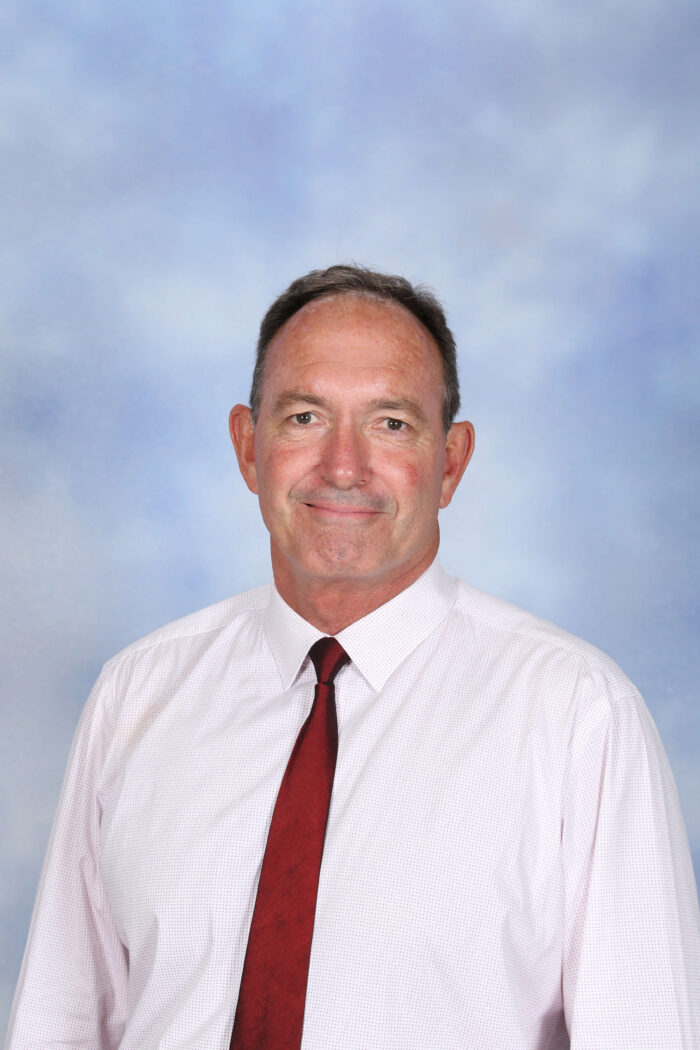
Safe of Social Media - Kirra Pendergast - Do not miss this presentation
Earlier in the year, staff and parents were fortunate enough to hear and benefit from sessions provided by Kirra Pendergast, the founder of the first consulting firm in Australia that focussed on Cyber Safety. Kirra will be speaking to our Year 3 to 6 students tomorrow, Thursday 28 October in two separate sessions.
In addition to this, there will be a session for Junior School parents and teachers from 7.30 pm – 8.30 pm, followed by a Q&A session.
Having heard the no-nonsense approach that Kirra takes when addressing the challenges of engaging with social media, I highly recommend these sessions to you. Kirra is an expert on the topic of Cyber Safety and presents to students K-12, teachers and parents at schools across Australia and New Zealand. She is also working with elite sports teams, speaks at legal seminars, government and business events, and conferences. Please contact Junior School Reception for further information if required.
Junior School Sport
I would like to thank the large number of staff who have contributed to the after-school sports training sessions. Despite some restrictions, it was great to see the number of children engaged in so many different activities…it was an eye opener for many of them, as much as it was some of our staff. But, all in all, it was a great success as you can see from the photos and we look forward to this continuing throughout the term.
TAS Bear – Week 3
Once again, TAS Bear has been very clever, sneaking about Junior School and observing our students in class and he has made up his mind where he would like to be all this week…..and you can find out as well by following this link as well…. https://youtu.be/UqzSXK2aYpM
School Spirits
Congratulations to the following students that received School Spirit Awards this week:
Ari Ah-See, Ed Benham, Bridei Stewart, Kieran Ahern, Chloe Chen, Ted Draney, Ruby Rice, Mehleen Sandhu, Roman Sue, Lara Thavapalasundaram, Rupert Newton, Nancy Ma, Kaitlyn Baker, Joshua Bourke, Macey Rodgers, Jack Wood, Xavier Stephen and Rhidima Das.
Happy Birthday
Chloe Chen, Minnie Chick, Rupert Newton, Rayyan Shahid and Bella Widders-Major all celebrate birthdays this week so best wishes to you all for your special day.
Mr Ian Lloyd
Head of Junior School
| Term 4 Dates | |
| Thursday 28 October | Safe on Socials Student sessions
Safe on Socials Parent session 7.30 – 8.30 pm (then Q&A) |
| Thursday 18 November | Orientation/Step up day (more to come) |
| Friday 19 November | Year 5 End of Year Dinner – Wicklow Hotel
|
| Wednesday 24 November | Junior School Final Assembly |
| Tuesday 30 November | Junior School Pool Party – Monckton Aquatic Centre |
| Wednesday 1 December | Junior School Speech Day (tba)
End of Year Celebrations (tba) School Concludes at 3.30 pm |

IB Primary Years Programme (PYP)
PYP-Final Unit of Inquiry for 2021
It is hard to believe that all classes have commenced their final unit of inquiry for 2021. The final unit provides an opportunity for students to refine and reflect upon their approaches to learning, attributes of the learner profile and their ability to ask conceptual questions.
PYP students are encouraged and provided with opportunities to take action for a better and more peaceful world.
| Year Group | Transdisciplinary Theme | Central Idea |
| Transition | Where we are in place and time | Journeys can lead to new experiences and opportunities
|
| Kindergarten | How we express ourselves | Creativity allows for expression
|
| Year 1 | Where we are in place and time | Knowledge of history and culture influences our appreciation of family
|
| Year 2 | Sharing the planet | Earth’s resources can be used to satisfy our needs.
|
| Year 3 | Where we are in place and time | Many people have contributed to a community and have influenced how the community has developed.
|
| Year 4 | Sharing the planet | Peace and conflict may impact people in different ways
|
| Year 5 | Who we are | Factors that influence identity and behaviour
|
Mrs Veronica Waters
PYP Coordinator

Junior School Sport
We had some very excited children this week as they started their sports programme for Term 4. With restrictions in place, we have been able to offer the children a Tabloid Sports program which offers flexible, active, creative, and fun activities and games. Each Tabloid station has equipment designed to stimulate a variety of skills including those common to modified and traditional sports. We encourage teamwork, good social skills and offer a positive experience for those students who have not been involved in many sports before along with those who have, as the children challenge themselves.
We are also able to provide training and modified games for Indoor Hockey on Monday afternoons and Basketball on Wednesdays. Unfortunately, due to staffing and limiting sizes of groups we cannot offer children the chance to participate in two sports this term. We are hoping this may change for Term 1, next year.
Children may wear their sports clothes to school on the day they have sport. Please ensure your child has a water bottle, hat, and something small to eat for afternoon tea before we commence. T-2 children will be ready for collection at 4:50 and Year 3 and 4 at 5 pm.
Mrs Christine Wright
Junior School Sports Coordinator







